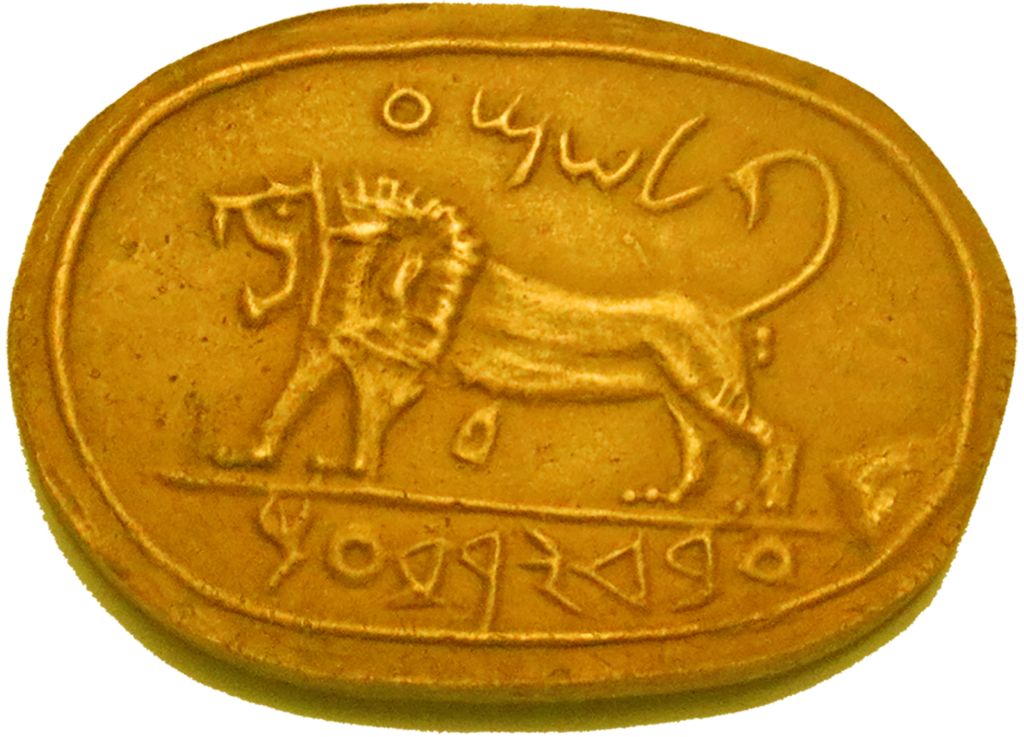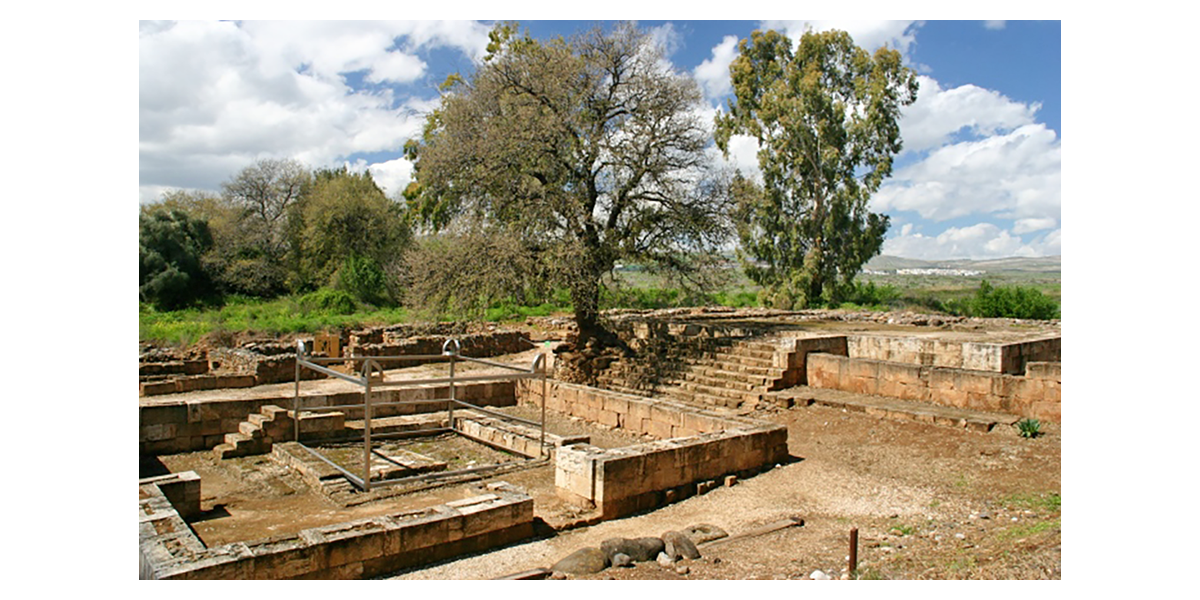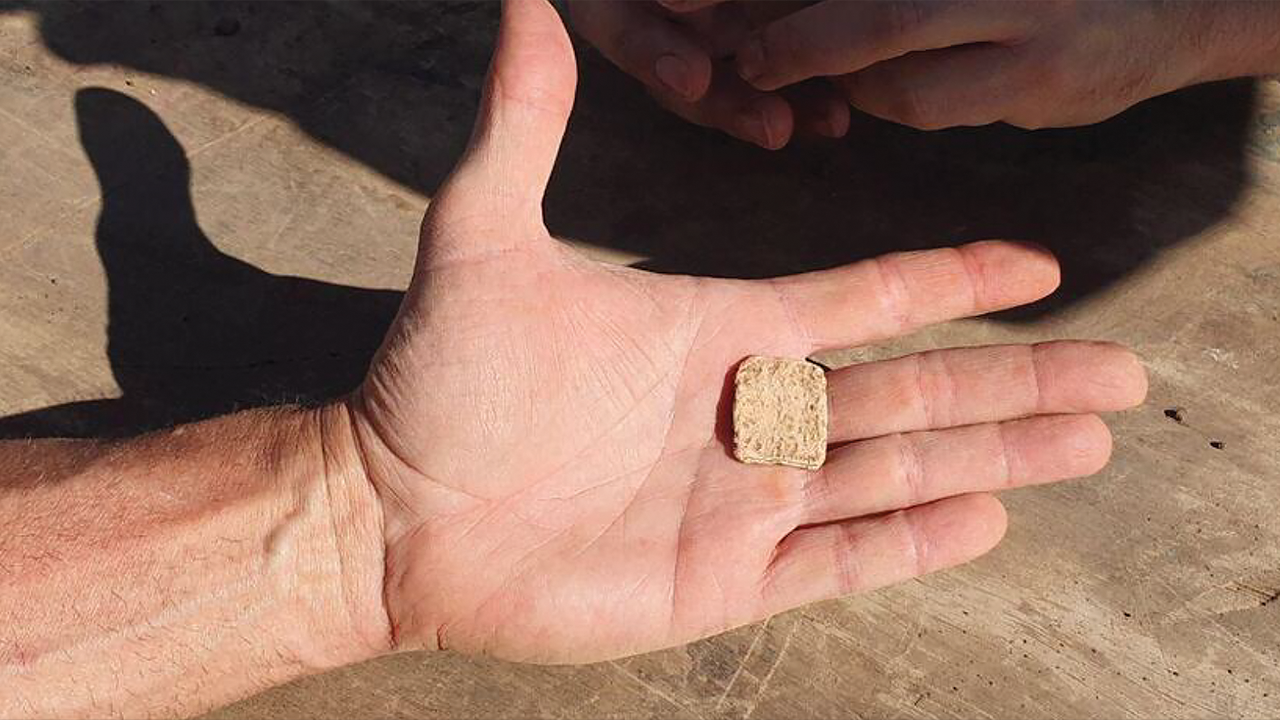(Photo) Modern day remains of Jeroboam’s alternate worship center at Tel Dan include an altar (reconstructed outline made of aluminum) twice as big as the one at the temple in Jerusalem, houses for priests located west of the altar, and a 60’ x 60’ raised platform (“bamah”) up the wide set of stairs north of the altar.
A seasoned educational leader asked me recently what makes The Bible Seminary (TBS) unique. As I reeled off my dizzying inspirational list, he was impressed by our vision, surprised by the exceptional depth and range of our programs and policies, and amazed by our growing success during a time when many schools are closing, standard educational models are facing drastic changes, and mainstream culture is flowing in other directions.
Of all that TBS is, does, and aspires to become, I am most pleased with and committed to our primary distinctive – authentic Christian education based on the Gospel of Jesus Christ and rooted in all 66 books of the Bible. Although in bygone years this position would have placed TBS firmly in the mainstream of society and education nationwide, we now find ourselves in what some would describe as the antiquated, marginal backwaters of ignorance and intolerance.
As I sit here on the breezy rooftop terrace of my hotel overlooking the modern-day city of Jerusalem, I am reminded of God’s words to Solomon and Jeroboam nearly 3000 years ago most likely spoken within proximity range of my vision. When the Lord blessed Solomon with the throne of His united nation, unparalleled majesty, riches, and wisdom, He told him, “If you follow my decrees, observe my laws and keep all my commands and obey them, I will fulfill through you the promise I gave to David your father. And I will live among the Israelites and will not abandon my people Israel” (I Kings 6:12-13) and “If you walk before me faithfully with integrity of heart and uprightness . . . and do all I command and observe my decrees and laws, I will establish your royal throne over Israel forever” (I Kings 9:4-5). However, “the Lord became angry when Solomon turned his heart away from the Lord” (I Kings 11:9). “Since this is your attitude and you have not kept my covenant and my decrees, which I commanded you,” the Lord told Solomon, “I will most certainly tear the kingdom away from you and give it to one of your subordinates” (I Kings 11:11).
One question repeatedly asked in our classes is, “If Solomon was so wise, why did he sin against the Lord?” We then discuss the difference between wisdom and obedience, namely that knowing right is not the same as doing right.
The Lord then offered one of Solomon’s stellar employees, Jeroboam, the ten tribes comprising the northern kingdom of Israel. He promised Jeroboam, “I will take you, and you will rule over all that your heart desires; you will be king over Israel. If you do whatever I command you and walk in obedience to me and do what is right in my eyes by obeying my decrees and commands, as David my servant did, I will be with you. I will build you a dynasty as enduring as the one I built for David and will give Israel to you” (I Kings 11:37-38).

Metal impression of a jasper seal: Found at Tel Meggido in 1904, the seal reads, “(Belonging) to Shema servant of Jeroboam.” Notice that King Jeroboam apparently used the lion symbol of the kingdom of Judah, perhaps as an indirect challenge to Solomon’s son, King Rehoboam, who retained leadership of the southern kingdom. This usage also evidences Jeroboam’s thieving ways – whether God or man, religion or politics – steal what belongs to others and repurpose it to suit yourself.
Yet, Jeroboam sought bad advice and instituted alternate worship practices. He fashioned golden calf idols, assigned places to conveniently worship them at Bethel and Dan so his subjects would not have to travel all the way to Jerusalem to worship the Lord at the temple, appointed ineligible priests, instituted new festivals on his own special days, and offered his own sacrifices – all clear violations of the Lord’s commands. Although the Lord sent prophets to warn him, “Jeroboam did not change his evil ways, but once more appointed priests for the high places from all sorts of people. Anyone who wanted to become a priest he consecrated for the high places. This was the sin of the house of Jeroboam that led to its downfall and to its destruction from the face of the earth” (I Kings 13:33-34). The Lord responded through the prophet Ahijah, “I raised you up from among the people and appointed you ruler over my people Israel. I tore the kingdom away from the house of David and gave it to you, but you…have done more evil than all who lived before you. You have made for yourself other gods…you have aroused my anger and turned your back on me” (I Kings 14:7-9). The Lord then promised to destroy Jeroboam’s family, a promise fulfilled within two years of his death (I Kings 15:29).
Unfortunately, God’s chosen servant to carry out His punishment against Jeroboam was himself punished for continuing Jeroboam’s counterfeit ways. “I exalted you out of the dust and made you leader over my people Israel,” the Lord berated Baasha, the third king of Israel, “and you have walked in the way of Jeroboam, and have caused my people Israel to sin, provoking me to anger with their sins. Therefore, I will consume Baasha and his house, and I will make your house like the house of Jeroboam” (I Kings 16:2-3). Ultimately, all twenty kings of Israel followed the way of Jeroboam – routinely summarized as “did what was evil in the sight of the Lord” – and the northern kingdom fell to the Assyrians within 200 years.
Regrettably, these same sins of arrogance, distraction, self-centeredness, listening to bad advice, desire for convenience, rejection of God’s standards, appointment of ineligible ministry leaders, and engaging in counterfeit worship are rampant today. Just like in ancient times, our responses to God’s “if’s” can bring blessings or curses.
All leaders – priests and prophets, pastors and presidents, parents and principals, physicians and proprietors – have freedom to choose and be blessed for what they do right and punished for what they do wrong.
Recent decades have witnessed significant mainline denominational fractures, including a current battle underway in the historic United Methodist Church (UMC) between so-called “Traditionalists” and “Progressives.” Although the UMC recently took global actions to uphold scriptural standards, the leader of a “resist” effort formed in opposition echoes the ways of Jeroboam in saying, “We are going to live and be the kind of church we want to be, regardless what the denominational rules say.”1 This historic pattern of engaging in ultimate copyright violation uses the Lord’s name, knocks-off elements of authentic worship, and twists biblical teachings of sin, redemption, resurrection, eternal life, salvation, justice, grace, mercy, love and qualifications for ministry. The way of Jeroboam is alive and well among “progressives” who fabricate their own contemporary versions of religion and ignore or reimagine primary themes of the Gospel of Jesus Christ.
Consider repentance. According to the Bible, “There is no one who does good, no, not one” (Psalm 14:3); “Repent and turn from all your transgressions” (Ezekiel 18:30); “John the baptizer appeared in the wilderness, proclaiming a baptism of repentance for the forgiveness of sins” (Mark 1:4); “Repent and believe the good news” (Jesus, in Mark 1:15), and “Repent, and be baptized every one of you in the name of Jesus Christ so that your sins may be forgiven” (Peter, in Acts 2:38). Yet, according to those who follow the way of Jeroboam, people are basically good, convenient religion accommodates personal preferences, and some behaviors the Bible seems to define as “sin” are, instead, explained away as misinterpretations of scripture and claimed as blessed activities that should be affirmed, celebrated, and legally permissible.
The news these days often includes examples of these scriptures: “The wicked freely strut about when what is vile is honored among men” (Psalm 12:2), and “Although they know God’s righteous decree that those who do such things deserve death, they not only continue to do these very things but also approve of those who practice them” (Romans 1:32).
These things matter because TBS finds itself among an increasingly shrinking group of religious educational leaders who believe God exists, that Jesus Christ is Lord, and that the Bible is the Word of God. According to a recent article by Michael Foust:
The president of a seminary founded in 1836 on the “infallible” Word of God says in a new interview she doesn’t believe in the bodily resurrection of Christ, the power of prayer, a literal heaven, or miracles. Serene Jones, president of Union Theological Seminary in New York, made the comments in an interview with Nicholas Kristof of The New York Times for an article published Easter weekend. Although the author’s intent may have been to inspire readers, it also served to spotlight the leftward drift of many seminaries. Union Theological Seminary’s founding constitution stated the seminary’s goal was to “promote” the “Kingdom of Christ.” Professors were required to affirm they believed “the Scriptures of the Old and New Testament to be the word of God” and the “only infallible rule of faith and practice.” But as Jones made clear, the seminary is a very different school today.2
Jones is not alone in her views, as evidenced by the teaching of leaders and graduates of numerous seminaries and “Christian” colleges. This past January, the presidents of 93 colleges and universities representing the National Association of Schools and Colleges of the United Methodist Church unanimously called on leaders of the 2019 Called General Conference to amend “their policies and practices to affirm full inclusion in the life and ministry of the United Methodist Church of all persons regardless of their race, ethnicity, creed, national origin, gender, gender identity/expression or sexual orientation.”3 Many of these Presidents then publicly expressed extreme disappointment when the Conference voted instead to continue to uphold traditional scriptural and historic United Methodist standards.
Conversely, as President of The Bible Seminary, I want to assure everyone of our intent to wholeheartedly and without reservation continue to provide authentic Christian education based on the Gospel of Jesus Christ and rooted in all 66 books of the Bible. The way of Jeroboam should have no place in any of our hearts, homes, offices, classrooms, or pulpits.
In light of biblical history and God’s record of keeping His promises, I far prefer to live and die seeking to obey the Lord’s conditional “if” clauses that lead to blessings. TBS is and will continue to be a unique seminary in many ways, and we invite your support and partnership in serving as a vibrant witness of faith that brings glory to God in all that we do everywhere we go.
Footnotes
- “Group of United Methodist churches to stay, resist LGBTQ policies,” Jordan Betts, 5/22/2019, KSHB.com.
- “Seminary President Admits She Doesn’t Believe in Heaven, Miracles or Christ’s Resurrection,” Michael Foust, 4/25/2019, ChristianHeadlines.com.
- “Joint Statement of NASCUMC Member Presidents On the Called General Conference and the Subject of Human Sexuality,” 1/5/2019, GBHEM.org.





